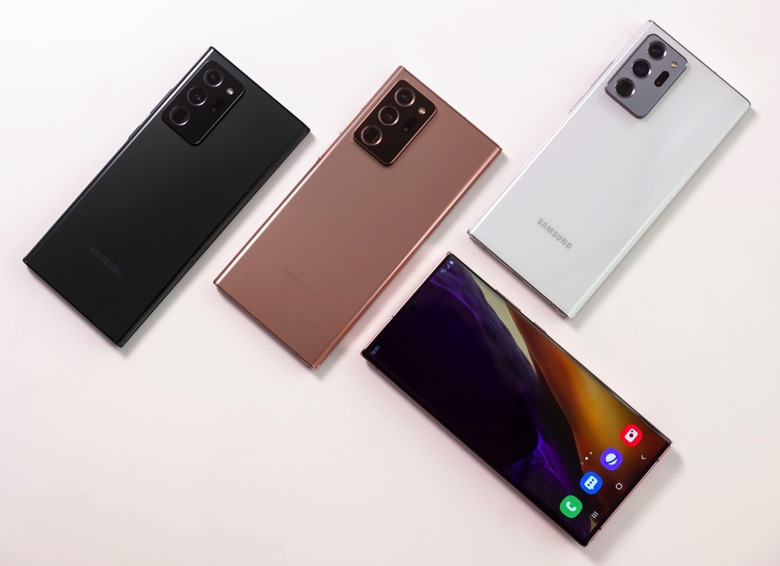Samsung Explains Why There Might Not Be A Galaxy Note 21 This Year
Rumors in late 2020 said that Samsung might abandon the Galaxy Note series, as it's looking at making significant changes to its operations. Samsung was contemplating adding the S Pen stylus to other devices, including the Galaxy S21 Ultra and the upcoming Galaxy Z Fold 3. Samsung later confirmed the rumors, and the S21 Ultra does support the stylus. The S Pen is the only remaining Note feature, as the Galaxy Note is no longer the largest smartphone you can buy. Samsung dismissed rumors that there won't be a Note 21 phone in stores this year a few months ago. But the Korean giant is now changing tune. There might not be a Galaxy Note 21 this year, but not because the Galaxy S21 Ultra is practically a Note 21 version.
Samsung co-CEO DJ Koh, who previously lead the mobile division, said during the annual shareholders meeting in Seoul that the current chip shortage will pose a severe problem next quarter. Per Bloomberg, that's where he said that Samsung is considering skipping the introduction of a new Galaxy Note this year.
"There's a serious imbalance in supply and demand of chips in the IT sector globally," Koh said. "Despite the difficult environment, our business leaders are meeting partners overseas to solve these problems. It's hard to say the shortage issue has been solved 100%."
"Note series is positioned as a high-end model in our business portfolio," he said. "It could be a burden to unveil two flagship models in a year, so it might be difficult to release Note model in [the second half of 2021]. The timing of Note model launch can be changed, but we seek to release a Note model next year."
Samsung is the latest company to acknowledge the "serious imbalance" in semiconductors globally. The COVID-19 pandemic has increased the demand for all sorts of electronics that require plenty of chips, from smartphones to cars. It's the automaking industry that has been complaining the most about the chip shortage. Samsung chiming in further confirms the massive problem that several tech companies are facing.
Bloomberg reports that industry giants including Continental, Renesas Electronics, and Innolux have warned of longer-than-anticipated deficits. Volkswagen confirmed it had lost production of about 100,000 cars worldwide. Toyota and Honda have also been impacted, with the chip shortage and extreme weather in the US slowing production. Carmakers are expected to lose $61 billion of sales this year because of poor inventory planning.
Samsung is already working with partners to resolve the issue, the co-CEO said. Samsung manufactures its processors for smartphones, as well as other chips for its customers. But it also relies on other suppliers for certain silicon, like power management and radio chips.
Like Samsung, Qualcomm is also affected, especially since Samsung manufactures some of its chips. Qualcomm's 5G chips issues might lead to a 5% drop in the global smartphone output in the second quarter of 2021.
China is also eating up chips, further fueling demand and impacting supply. Some analysts expect shortages to be ironed out in the coming months, but the current problems could still affect the broader consumer electronics industry.
"The tightened supply of Qualcomm AP chips produced by TSMC is affecting everybody except Apple," Samsung Securities analyst MS Hwang told Bloomberg. "PCs will soon be hit due to the short supply of display driver ICs, and the profitability of TV will be affected by soaring LCD panel prices."
Before Koh's comments, there was no indication that the Note 21 was actually in the making, so the chip shortage could give Samsung the best reason to kill the Note. With about five months to go until the handset's expected summer launch, we've had no rumors to indicate the handset might be in production. Samsung flagships do not stay secret for too long, and the absence of early rumors is quite telling.
